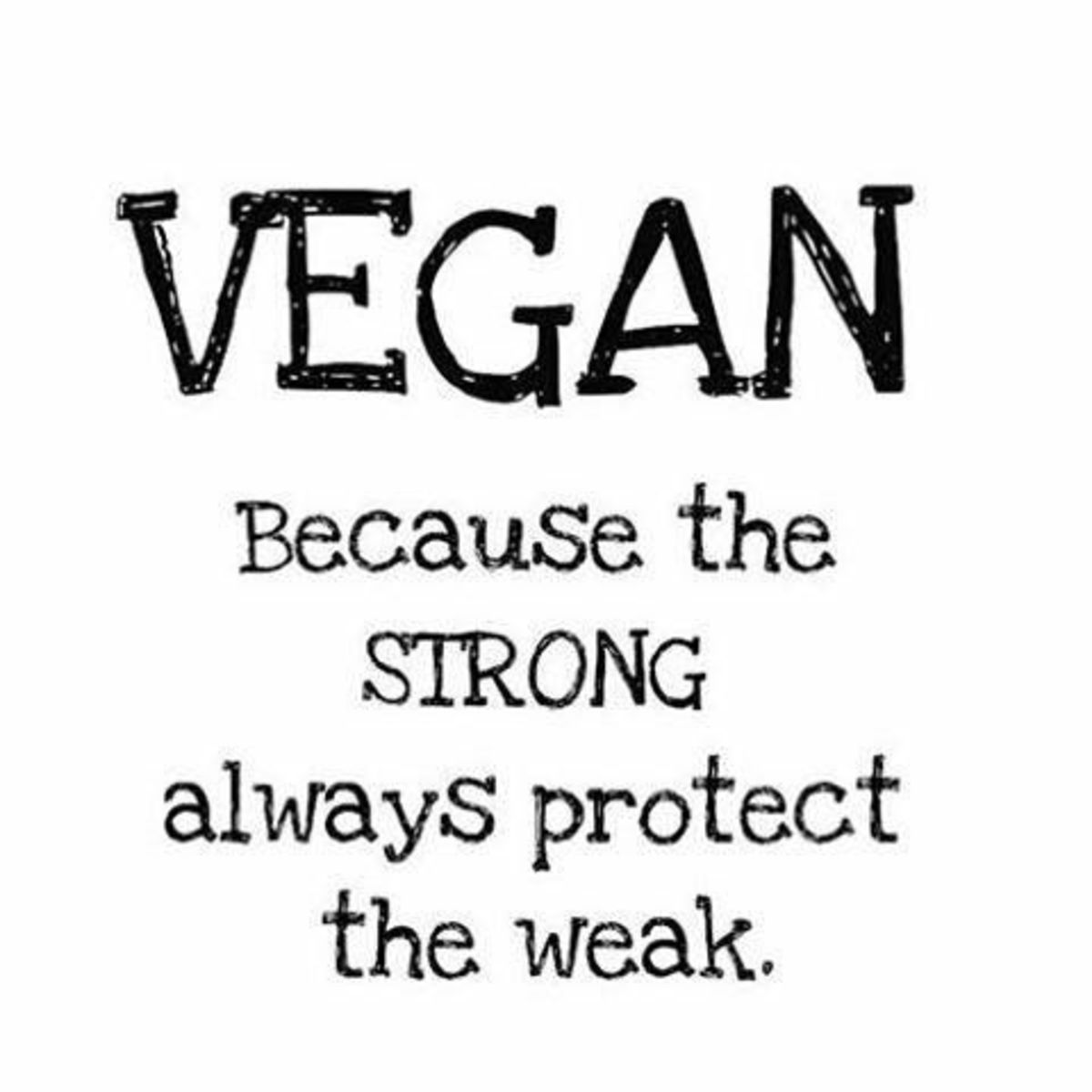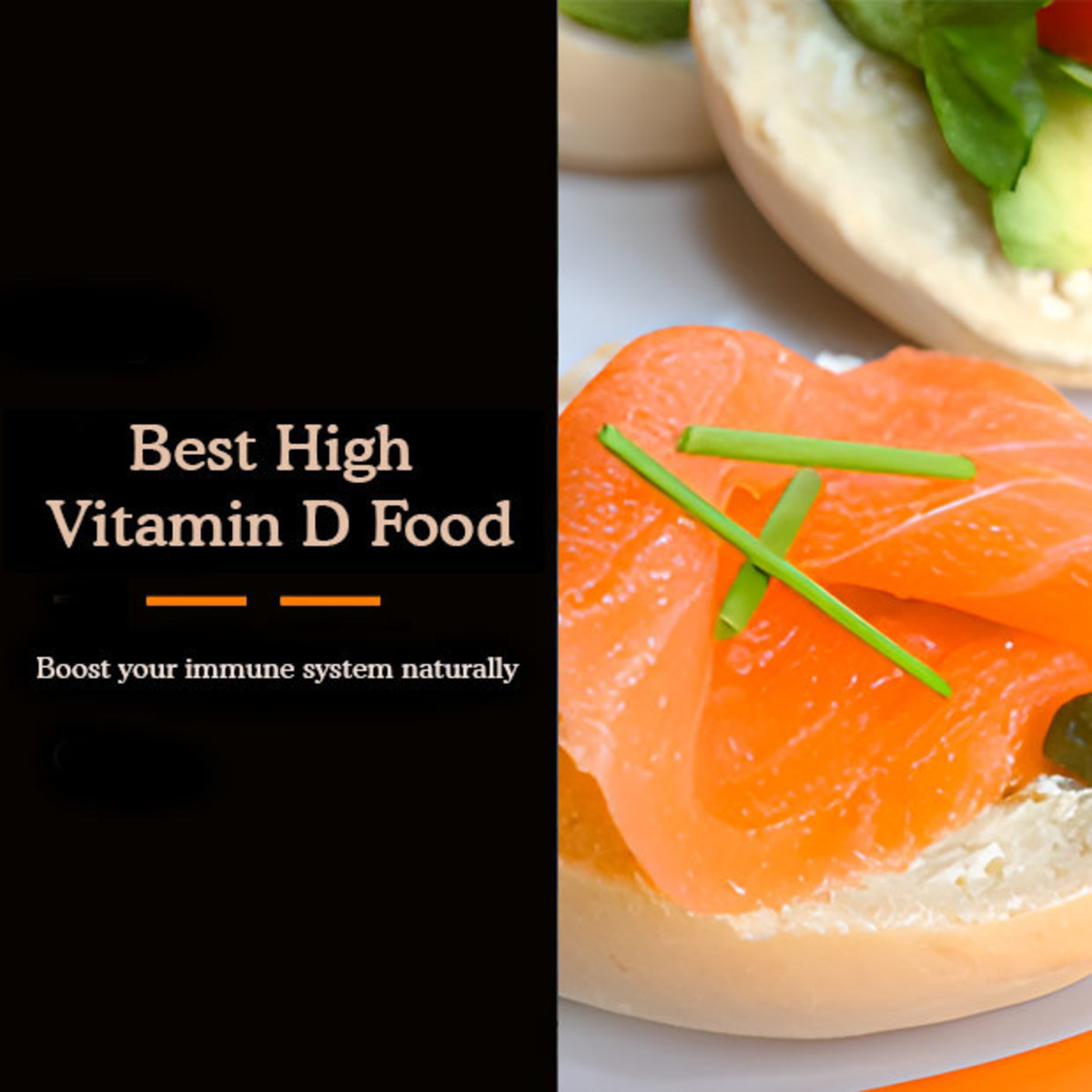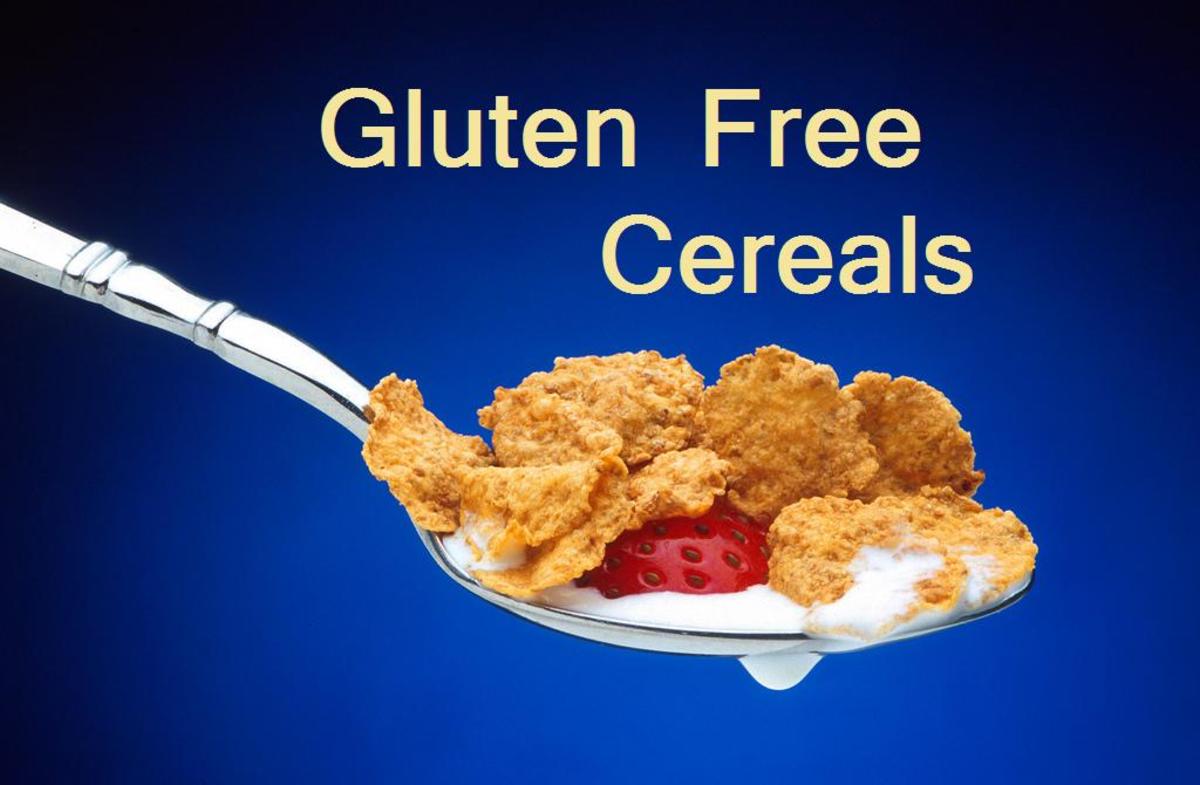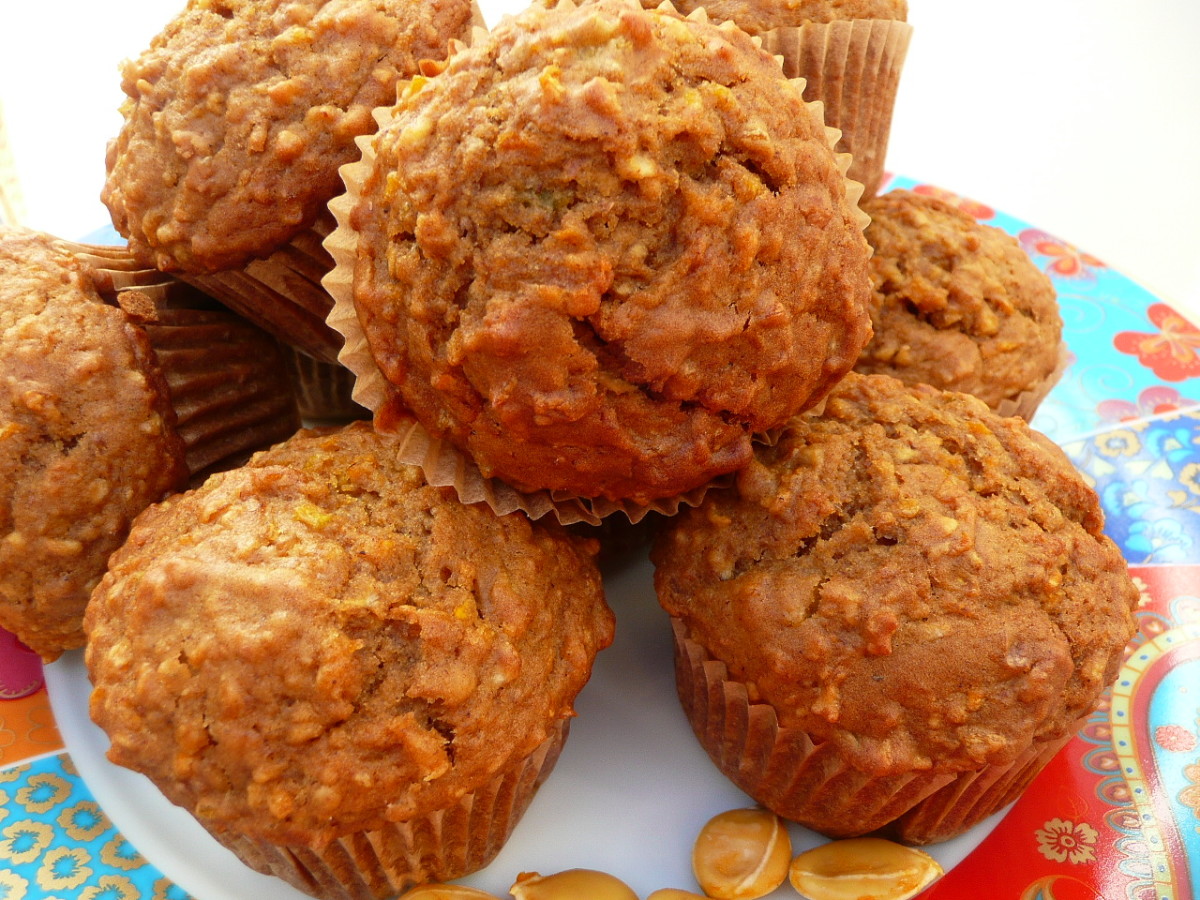Animal By-Products
Animal By-Products Vegetarians Should be Aware of
There is a learning curve for anyone who decides to become a vegetarian. Some people may decide they only want to give up meat, perhaps for health or religious reasons. This article is for those who are interested in giving up all products that were the result of animals being slaughtered, aside from meat. Animal by-products are found in a wide range of foods and products.
If you are new to vegetarianism, try not to become overwhelmed with figuring out what is what. It takes time to learn and adjust. Start slowly and gradually make changes. If you are still working on giving up meat, perhaps you would be more successful if you focused on that for now. Once you stop craving steak, you will be ready to focus on by-products.
As you read the list below, keep in mind there are many alternatives available that are vegetarian-friendly. You do not necessarily have to make a great deal of sacrifices. Rather, you will learn to read product labels and make more informed decisions.
There are several ingredients to keep in mind, so I personally started with one and when I had that one down, I moved on to the next. I have had to do research to find suitable alternatives. As time has gone by and the more educated I have become, the easier it has become to select vegetarian friendly foods and products.
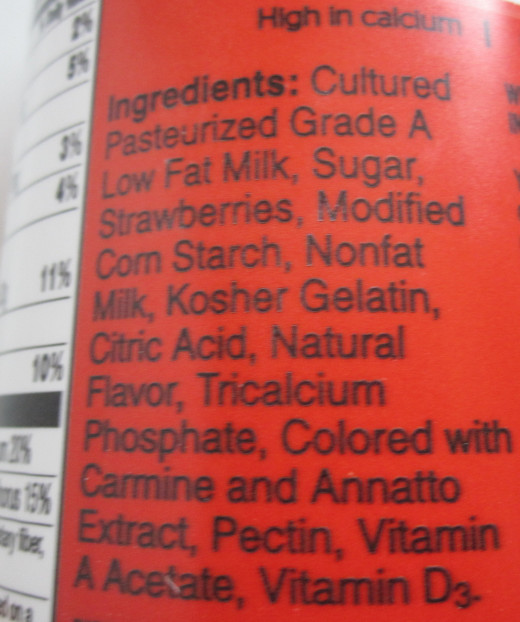
Gelatin
Derived from collagen of animal by-products, gelatin is an ingredient found in many foods and products that many vegetarians choose to avoid. The process of making gelatin consists of boiling animal by-products, such as bones, skins, tendons, and ligaments.
The range of products gelatin can be found in is wide. The best bet for someone who wishes to avoid consuming gelatin is to read labels. Some products to be aware of that may contain gelatin include:
- Gummy and chewy candies
- Marshmallows
- Pudding
- Sour cream
- Yogurt
- Pastries
- Flavored gelatin, such as Jell-O
- Soup
- Salad dressing
- Vitamins, pills, and supplements
- Cosmetics and hygiene products
- Paint balls (used in paint ball guns)
Keep in mind that there are usually gelatin-free varieties of foods and other products available. An alternative to gelatin itself is agar agar, which is made from seaweed and detoxifies!
Rennet
Cheese contains rennet, sometimes derived from the stomach lining of young dairy animals. Rennet is used in the coagulation process. The good news is not all cheese contains animal-derived rennet. Some cheese manufacturers use rennet derived from vegetables or plants. Rennet can also come from microbial sources.
This link provides more information about rennet and includes a list of cheeses that are not made with animal rennet.
Carmine
May I interest you in a beetle? If not, be sure to avoid this ingredient. It also goes by the names Cochineal, Crimson Lake, and Natural Red 4. Beetles are crushed to make carmine, which is used as a food coloring, and is found in pink and red foods and cosmetics. In general, if something is red or pink, check the label to ensure a beetle cartel did not color that product. Some products to beware of:
- Yogurt
- Frosted cookies
- Cosmetics, such as lipstick and nail polish
- Paint
Lard in Recipes
If a recipe calls for lard, don't fret. You can substitute butter or shortening (one for one). If you are using it in high temperatures, it is advisable to use an oil with a high smoke point. Use 7/8 cup of oil for each cup of lard called for.
Lard
Lard, derived from the abdominal fat of pigs, can be found in unexpected places. Here are some examples:
- Tortillas
- Refried beans
- Pastries and baked goods
- Biscuits
When you buy or order any of these or similar products, verify that they were not made with lard.
Vitamin D3 and Lanolin
Vitamin D3 is often made from lanolin, which is a wax found on the wool of sheep. While sheep are not slaughtered in the process, there is some uncertainty as to the way the sheep are treated and how often they die as a result of the process.
Vitamin D3 is a popular addition to beverages and foods such as milk, orange juice, and cereal. As a cereal lover, this seemed like bad news when I first heard it. At the time, I was only able to find one brand of cereal that did not use D3. Since then, I have stumbled upon others and am pleased with the variety available. I will share some brands I have found that exclude vitamin D3 in at least one variety. Check the labels, though, as other varieties may contain it, and recipes sometimes change.
Brands with at least some safe options:
- Quaker
- Kashi
- Cascadia farms
- Mom's Best Naturals
Vitamin D3 is recommended over vitamin D2. If you don't believe you are obtaining enough vitamin D from sun exposure, it may be a good idea to take a vitamin D3 supplement. Vegan vitamin D3 is now available. If you are unsure whether you are getting necessary vitamins and minerals, you may want to play it safe and speak with your health care provider.
Lanolin is found in products, such as lotions and other beauty care products. When shopping for theses products, it doesn't hurt to take a moment to read the label. There are several brands of beauty care products that do not use animal by-products or test on animals.
Glycerin
Though glycerin is often made from animal fats, it sometimes has a vegetable or synthetic source. Unfortunately, manufacturers are not required to specify the source on the product label. The only way to know for sure is to contact the manufacturer.
Glycerin has several purposes. It is used as a softener in products such as icing, It is also used in soap to attract moisture. Another purpose of glycerin is treating infections.
Products that may contain glycerine include:
- Soaps
- Lotions
- Fondant
- Deodorant
- Mascara
- Lipstick
Glycerin also goes by the names glycerine and glycerol.
Broth
When eating away from home or choosing processed foods, keep in mind animal-based broth may be in unexpected places. Onion soup, for instance, may sound safe. It often isn't, because beef broth is commonly used to make it. Other innocent sounding foods include rice and mashed potatoes. Broth adds flavor so some people cook with it regularly.
Similarly, remember gravy is probably made with animal-based fats and juices.
Homemade meals do not pose a problem. Recipes that call for chicken or beef broth can easily be modified by substituting vegetable broth.
Fish Sauce
As its name suggests, fish sauce is derived from fermented fish. When eating Asian food, particularly Thai and Vietnamese food, look out for fish sauce. An otherwise vegetarian-safe dish may contain fish sauce.
When you choose a dish that appears to be vegetarian, it would not hurt to ask your server if it contains fish sauce. Even if it is listed as a vegetarian dish, there is a chance it may contain fish sauce.
Reminder
If a food or product is not vegetarian friendly, do a little research and you are likely to find at least one suitable alternative.
Stearic Acid
Stearic acid, a saturated fatty acid, may be derived from either an animal or synthetic source. It is used as a binder and/or softener in various products, such as:
- Chewing gum
- Candy
- Vanilla flavoring
- Butter flavoring
- Shampoo
- Shaving creams
- Dietary supplements
Unfortunately, products do not generally indicate the source of stearic acid. To find out whether the source is synthetic or animal-based, a call or email to the manufacturer is typically necessary.
L-cysteine
L-cysteine, an amino acid also known as cysteine and cystine, is commonly derived from duck feathers as well as human hair. L-cysteine can also be derived from the hooves of pigs. L-cysteine can be found in products such as:
- Breads
- Rolls
- Pies
- Donuts
- Pizza crust
Similar to other ingredients, a little work is necessary to determine the source of L-cysteine. Product labels are unlikely to indicate the source. Keep in mind that L-cysteine is also commonly found in food at restaurants.
Sodium Stearoyl Lactylate
Not unlike many ingredients mentioned, sodium stearoyl lactylate may or may not be derived from an animal source. When it is animal-derived, it could come from either hogs or cows. Milk is another source of sodium stearoyl lactylate, as are vegetable minerals.
Sodium stearoyl lactylate is used as an emulsifier, dough conditioner, sweetener, and preservative. Products that may contain sodium stearoyl lactylate include:
- Salad dressings
- Pudding
- Crackers
- Breads
- Cookies
- Soups
Tricalcium Phosphate
Tricalcium phosphate, a calcium salt, may or may not be vegetarian friendly, depending on its source. Vegetarian friendly sources of tricalcium phosphate inclue inorganic sources, such as mineral rock. On the other hand, tricalcium phosphate is sometimes derived from bone.
Manufacturers add tricalcium phosphate to products to serve as an anti-caking material, to add calcium, to regulate acid, and to solidify.
You may find tricalcium phosphate in products such as:
- Yogurt
- Calcium supplements and antacids
- Powdered spices
- Baking mixes
- Toothpaste
Natural Flavor
Unfortunately, manufacturers are not required to spell out what natural flavors they have put into their products. It is our responsibility, then, to understand what this term may mean.
Sometimes "natural flavor" refers to chemicals that were derived from plants. Other times, it may be derived from animals.
The Code of Federal Regulations published by the Food and Drug Administration has defined natural flavor as (bold added for emphasis):
The term natural flavor or natural flavoring means the essential oil, oleo resin, essence or extractive, protein hydrolysate, distillate, or any product of roasting, heating or enzymolysis, which contains the flavoring constituents derived from a spice, fruit or fruit juice, vegetable or vegetable juice, edible yeast, herb, bark, bud, root, leaf or similar plant material, meat, seafood, poultry, eggs, dairy products, or fermentation products thereof, whose significant function in food is flavoring rather than nutritional. Natural flavors, include the natural essence or extractives obtained from plants listed in subpart A of part 582 of this chapter, and the substances listed in 172.510 of this chapter.
Vegetarian Safe Products
There are several brands of foods and other products that make it easy for vegetarians and vegans to make smart choices. Annie's, for instance, makes products such as macaroni and cheese, dressing, and condiments. They indicate on products that they are vegan or vegetarian.
A company that sells products that are safe for vegetarians and vegans is Beauty Without Cruelty. As you may have guessed, not only do their products not contain animal by-products, but their products are not tested on animals either.

